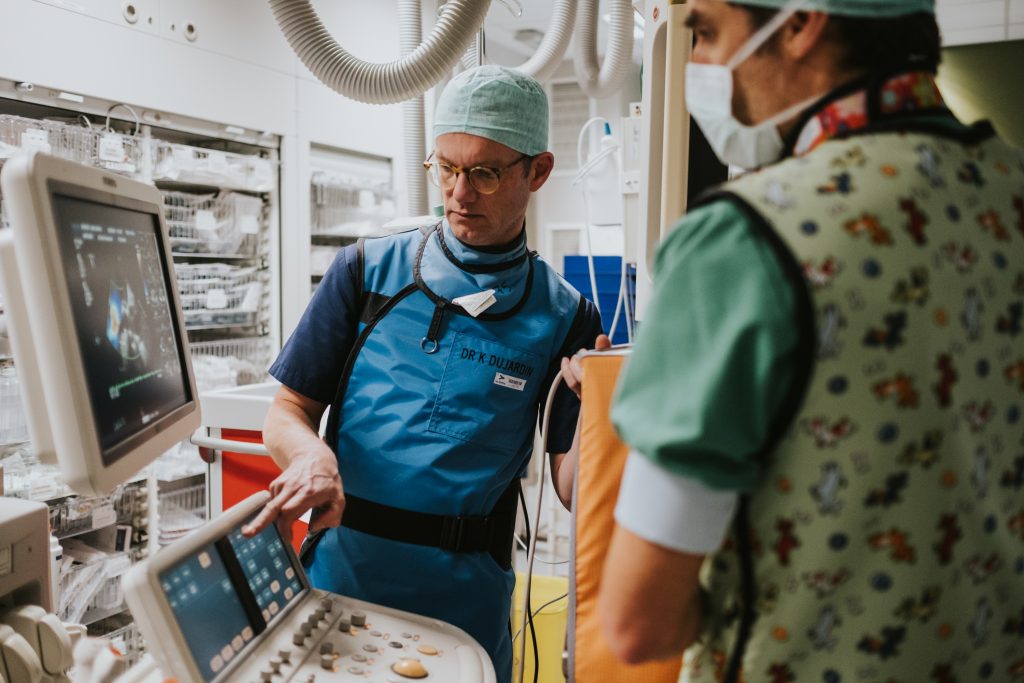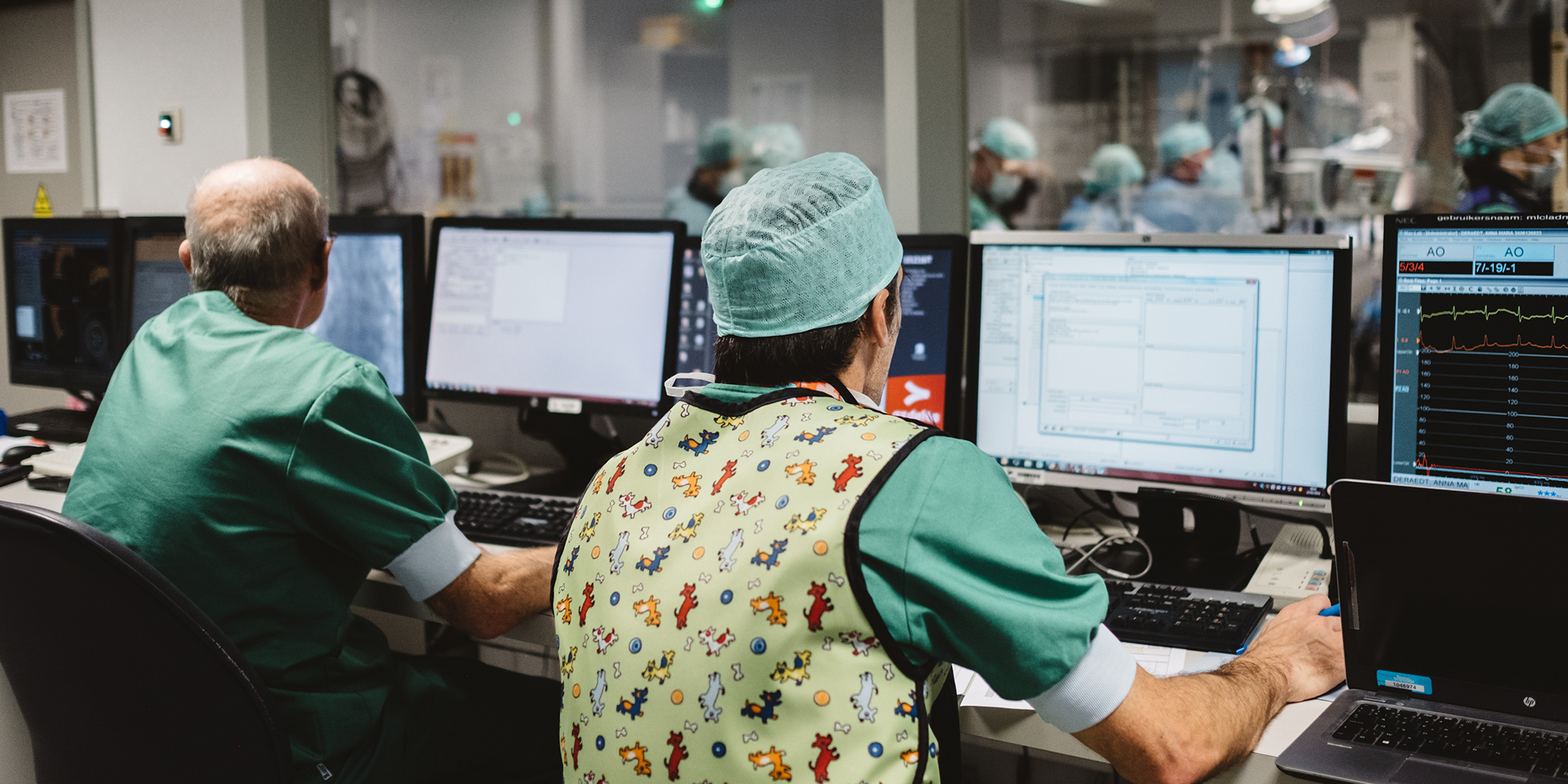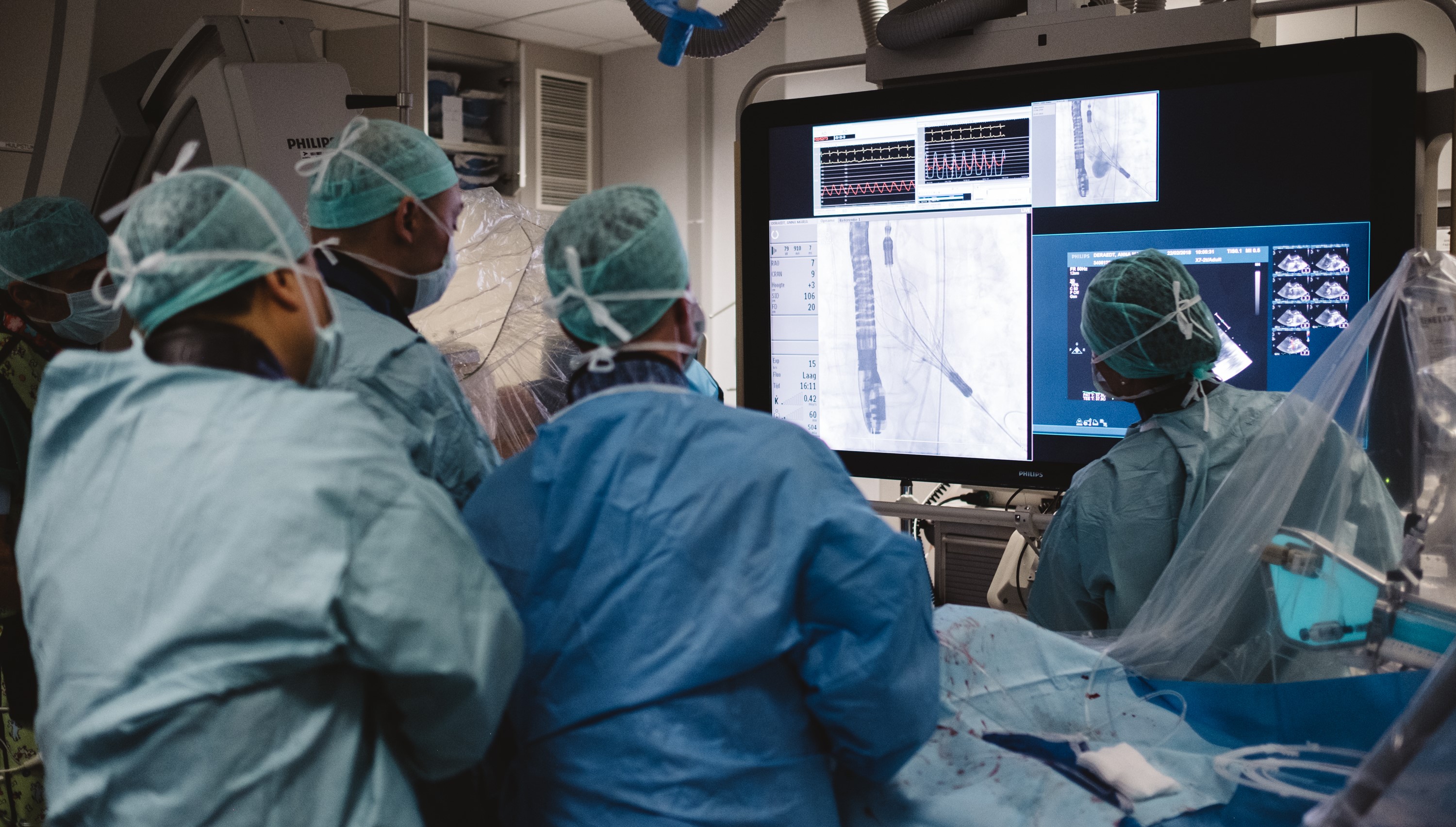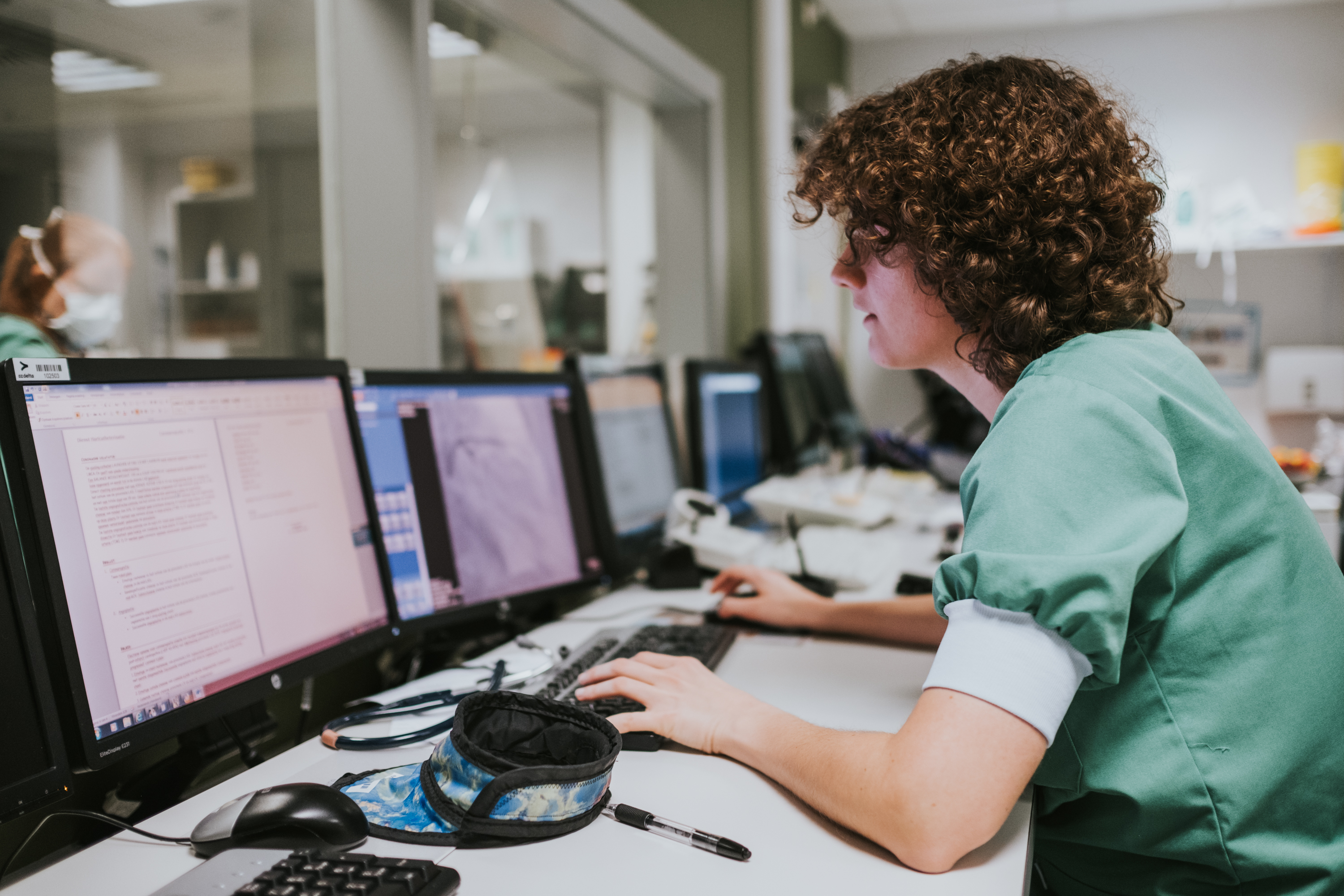
How AI is helping cardiologists improve their patient care
Healthcare with heart
Medical science continues to progress, allowing doctors to push the boundaries and always achieve more. One such example is the implantation of heart valves via the groin (percutaneous valve replacement /TAVI) – a procedure which has reached full swing in recent years due to it shorter recovery period and less invasive nature.
Some questions, however, are still asked. Are costly procedures such as this as successful as scientific studies are? Do these innovative techniques have the effect of reducing mortality? Are the results as good in one hospital as in the other?
“Such information is crucial for all members of our multidisciplinary team of doctors, carers and paramedics – they allow us to further improve the quality of our care,” says Dr Karl Dujardin, a cardiologist at Delta General Hospital, Roeselare, in Belgium.
Although these questions seem simple, it was almost impossible, until recently to answer them, he states. While both Dr Dujardin and his colleagues kept records of their procedures, for example, they lacked an overall vision of the effectiveness of the treatment.
When Dr Dujardin and his team wanted to know the average age of their patients or the rate of successful interventions, for example, they had to manually enter information in Excel from files, by hand. “It took a lot of time and we could only compare one aspect at a time,” Dr Dujardin recalls.
Smart software
Dr Dujardin speaks in the past tense when describing his manual data entry procedure. Now, his team uses Lynxcare’s intelligent medical software, allowing users to consult the statistics of all past operations, including mortality rate, average age and the state of patients before and after their procedures.
The Lynxcare medical start-up in Leuven has developed a data extraction method (Clinical Natural Language Processing & Machine Learning) for this purpose. The software operates in the Microsoft Azure cloud environment, where health data can be securely and confidentially processed and viewed by physicians. In addition, the application integrates seamlessly with the electronic patient record, which will soon be implemented across the Delta General Hospital.
Lynxcare’s technology can automatically read and code old reports of operations, observations and consultations. All of this information is stored in a database that is updated in real time, and the system is based on the criteria of a major Dutch study on valve replacement operations, so that data from the Delta General Hospital can be compared to statistics from Dutch cardiology centres.
Dr Dujardin is part of a multidisciplinary team of cardiac surgeons, cardiologists and anesthesiologists, who deal with patients with heart valve disorders. The team has particular expertise in the treating poor heart valves, replacing them via a groin catheter – or as Dr Dujardin puts it, “The old failing valve is pushed back by the new.”
The system itself is able to process information and documents from patients who have received a new aortic valve in the past seven years. “This system can fetch information from scans and can process it directly into an analytical model,” Dr Dujardin states. “It’s amazing, right? This saves a lot of time. Because as doctors, we can now start the statistical analysis right away.”
Vision of operational risks
The new system has given Dr Dujardin and his colleagues a much better overview of the risks of the different interventions. He now knows precisely how many cases have occurred, and whether they occurred shortly after the operation, or years later. He can also check how many of his very old patients are still alive after five or seven years, and what their state of health is, thanks to his intervention.
“With the Lynxcare app, we are collecting information on indication, treatment, and follow-up, which is critical to improving our clinical workflow,” says Dr Dujardin. “Such systematic measurement and continuous improvement is the foundation of a high quality of care, which is the strategic priority of Delta General Hospital. ”
The artificial intelligence of Lynxcare also offers even more possibilities to the cardiologist. He can now see, in an instant, how a group of patients with very specific characteristics successfully undergo an intervention. “One of the things we can now prove is that the older the patient, the greater the surgical risk. ”
This is an important revelation, as the replacement of the aortic valve via the groin is currently available only for patients who are not suitable for surgery. “The data give us arguments to engage with the health insurers about the reimbursement conditions for this expensive intervention. Indeed, the operation via the groin could potentially prolong and improve the life of a large group of patients – for example those presenting a medium risk, who have already undergone a heart operation.”
Better chances of survival
Of this last category of patients, nearly ten percent die in the years following open heart surgery. “Ultimately, the question is whether patients with an average operative risk would have a better chance of survival with aortic valve replacement via the groin. With the help of the CEW, we can now identify a group of patients we could test on.”
Such learnings are incredibly important. Life expectancy is increasing, and as a result, the number of people suffering from a narrowing of the aortic valve is also on the rise. In addition, there are elderly people who are generally still suffering from other ailments, but who in many cases may, after such an operation, continue to live for a certain number of years in good conditions.
“Because the cost of an operation is at the same time high, it is particularly important to make a realistic assessment of the situation based on reliable and up-to-date practical data. We are no longer relying solely on lessons learned from scientific studies, but we can now base our decisions on deep, well-thought-out real-time data. ”
Overcoming hesitations
At first, Dr Dujardin and his team had to overcome some hesitation in the mobilization of artificial intelligence, he admits. Is this technology as accurate as a doctor who captures data? For this reason, they performed a manual check on a number of patients whose records had been read by Lynxcare. “Everything matched perfectly,” concludes the cardiologist.
He is also particularly pleased that he now has concrete evidence that cardiac care in the Delta General Hospital is as good as that of the Dutch cardiology centres which follow operations with the same criteria. “We can now communicate seamlessly with our patients about this.”
This post originally appeared on Microsoft Pulse. For more information on how Microsoft is helping treat cardiovascular disease in Europe click here.

















